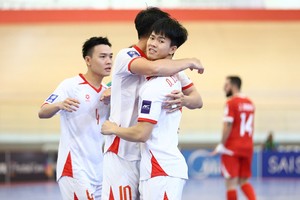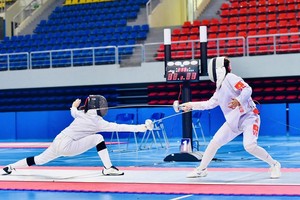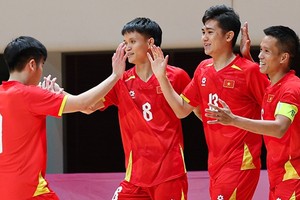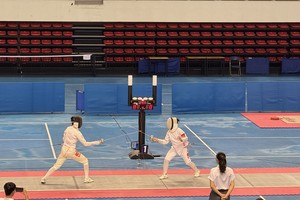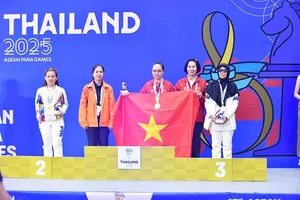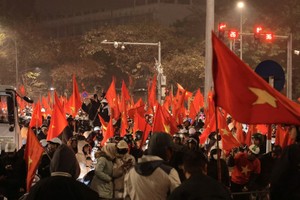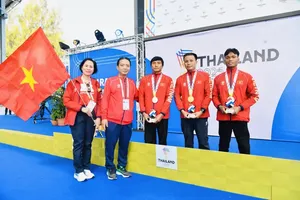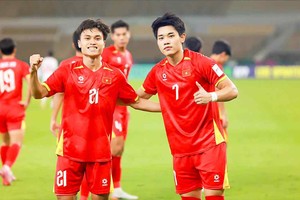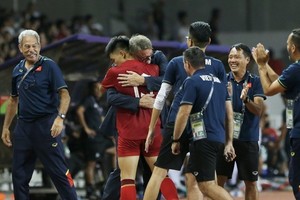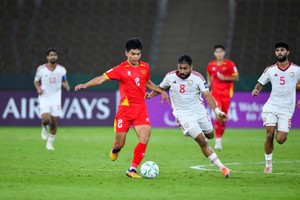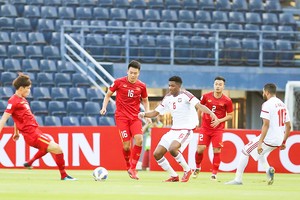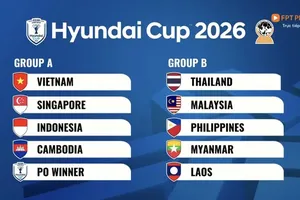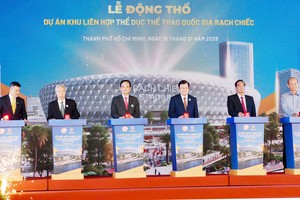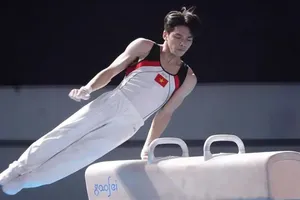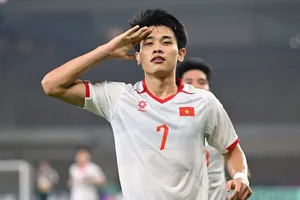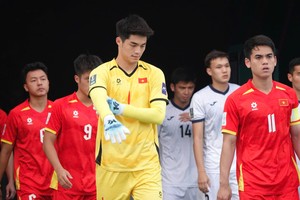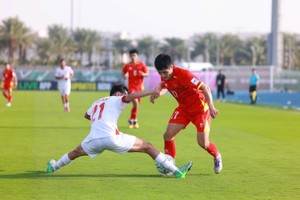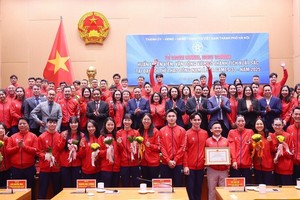Director Ly Dai Nghia of the Ho Chi Minh City Sports Training and Competition Center acknowledged that sports in the city has long played a leading role in the country, not only due to its outstanding performance but also its dynamism in applying science and technology to training.
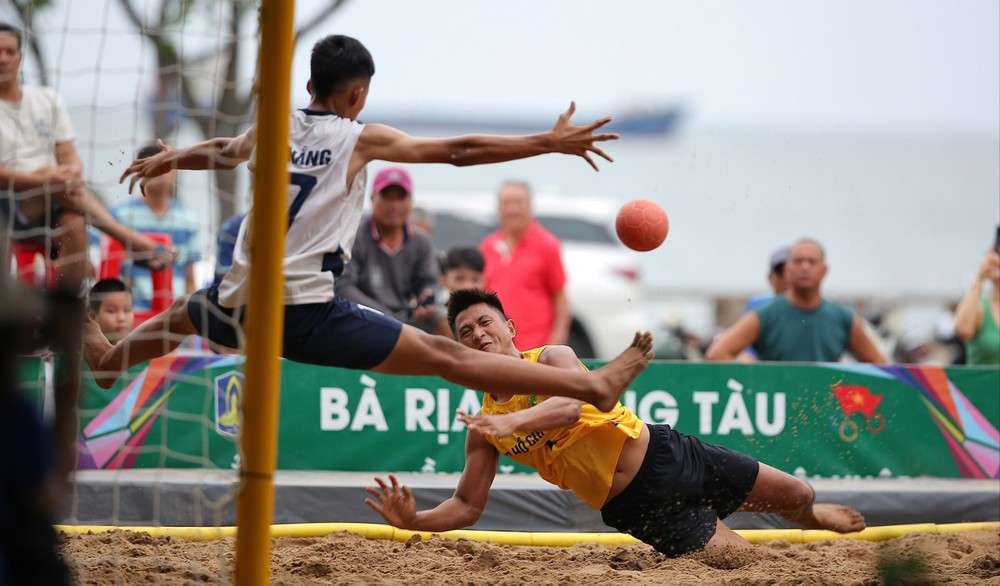
However, he added, the city's sports still face bottlenecks hindering development, such as increasingly limited land funds, degraded projects and facilities, and difficulties in the system for discovering and training young talents due to a lack of adjacent resources.
According to him, the existing facilities have not yet met the training needs of the populace, and the necessity for advanced training to elevate athlete performance also remains an issue requiring attention.
These seemingly long-standing bottlenecks now appear to have a clear path to resolution. At a recent conference discussing the draft project to reorganize the Department of Culture and Sports of Ho Chi Minh City and the Departments of Culture, Sports and Tourism of the two former provinces of Binh Duong and Ba Ria - Vung Tau, held just before the historic July 1 merger, Director Tran The Thuan of the Department of Culture and Sports of Ho Chi Minh City affirmed that there is no intention of merely merging one unit into another. Rather, the goal is to unify to maximize the strengths of each locality, fostering mutual complementation and forming a leading national cultural-sports super center.
Director of the Ho Chi Minh City Sports Training and Competition Center Ly Dai Nghia said that after the merger of the three localities, Ho Chi Minh City sports form a triangle of sustainable development. Ho Chi Minh City (old) will be the center for training high-level athletes, coordinating the city-wide sports training system, a place for sports science research and creating a smart sports economic market.
Binh Duong Province (old), with its rapid industrialization and satellite urban system, boasts a large youth population, making it a prime hub for identifying and nurturing talented athletes into skilled successors. Meanwhile, Ba Ria - Vung Tau Province (old), with its blue seas, temperate climate, and modern infrastructure, holds immense potential for hosting large-scale sea sports events, drawing athletes and tourists from across the region.
Sports achievements report
At 32nd SEA Games 2023
Ho Chi Minh City significantly contributed to Vietnam's sports delegation at the 32nd SEA Games in 2023, fielding 179 of the 1,003 members and securing 31 gold, 24 silver, and 20 bronze medals. Binh Duong participated with 17 athletes, earning one gold, two silver, and six bronze medals. Ba Ria - Vung Tau, with 6 athletes, contributed two gold, one silver, and 3 bronze medals to the national tally.
First half of 2025
According to the Division of Sports and Physical Training under the Ho Chi Minh City Department of Culture and Sports, sports in the city recruited 2,850 coaches and athletes in the first six months of 2025. Ho Chi Minh City sent over 300 teams to domestic and international competitions, amassing 1,014 medals including 361 gold, 331 silver, 322 bronze. Binh Duong sports invested in 29 disciplines, with 828 athletes and 145 coaches, competing nationally and internationally to win 454 medals. Ba Ria - Vung Tau hosted 23 national sports events, including the Asian U17 and U23 Wrestling Championships, and sent 76 teams to tournaments, securing 411 medals including 107 gold, 110 silver, 194 bronze.
The merger of sports units in Ho Chi Minh City represents not only a restructuring effort but also a significant advancement in the city's sports development strategy, fostering a more efficient operational framework to better address societal needs.
Deputy Director of the Ho Chi Minh City Department of Culture and Sports Nguyen Nam Nhan disclosed that two years ago, Ho Chi Minh City was entrusted with hosting the 10th National Sports Festival in 2026, expected to welcome 12,000 athletes. However, the state of the sports infrastructure at the time was an urgent wake-up call—many facilities had not seen significant renovation in over 20 years, and no new projects had been initiated.
In response, a vigorous push began to prepare for the festival, from streamlining investment procedures to accelerating construction efforts. To date, four key renovation and upgrade projects have broken ground comprising Hoa Lu Sports Center, Phu Tho Swimming and Diving Club, Phu Tho Sports Stadium, and the Phu Tho Sports Training Center. Two additional initiatives including the construction of a new training center for elite athletes in Hoa Lu and the renovation of Thong Nhat Stadium are scheduled for implementation in the third and fourth quarters of 2025.
This preparation task is no longer an individual effort. The sports sectors of Binh Duong and Ba Ria–Vung Tau provinces have joined forces with Ho Chi Minh City, actively collaborating through sectoral integration. Together, they are working toward the shared goal of successfully delivering the 2026 National Sports Festival—the largest sporting event in Vietnam, held every four years.
Phung Nguyen Tuong Minh, Head of Sports Management in Ba Ria-Vung Tau, noted that Ba Ria–Vung Tau annually hosts around 30 national tournaments using its existing infrastructure—effectively serving as a test bed for the requirements of the 2026 National Sports Festival. Leveraging its coastal advantages and well-developed hotel accommodation network, Ba Ria–Vung Tau is set to host 10 sports during the upcoming festival.
Meanwhile, Binh Duong will organize five official events: boxing, jujitsu, pétanque, dance sport, and cycling. The road cycling competition, in particular, will take advantage of Binh Duong’s scenic and secure routes—traversing areas such as Bau Bang, Ben Cat, Thu Dau Mot, Tan Uyen, and Thuan An—which fully satisfy stringent competition standards.
Additionally, the construction of a pétanque stadium is nearing completion and is expected to meet all national-level tournament criteria in the second half of the year.
Deputy Director of the Ho Chi Minh City Department of Culture and Sports Nguyen Nam Nhan emphasized that the 2026 National Sports Festival is not just an event as it marks the beginning of a new era for Ho Chi Minh City’s sports sector, one defined by heightened organizational capacity, modernized infrastructure, and an elevated atheletes' ambition.
